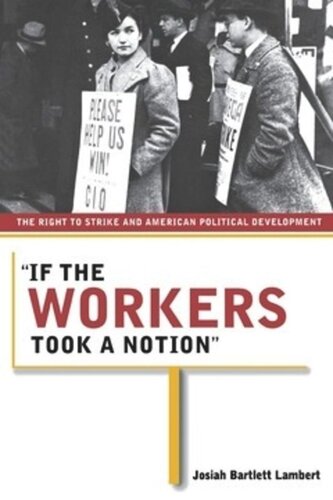

Most ebook files are in PDF format, so you can easily read them using various software such as Foxit Reader or directly on the Google Chrome browser.
Some ebook files are released by publishers in other formats such as .awz, .mobi, .epub, .fb2, etc. You may need to install specific software to read these formats on mobile/PC, such as Calibre.
Please read the tutorial at this link: https://ebookbell.com/faq
We offer FREE conversion to the popular formats you request; however, this may take some time. Therefore, right after payment, please email us, and we will try to provide the service as quickly as possible.
For some exceptional file formats or broken links (if any), please refrain from opening any disputes. Instead, email us first, and we will try to assist within a maximum of 6 hours.
EbookBell Team

0.0
0 reviewsOnce a fundamental civic right, strikes are now constrained and contested. In an unusual and thought-provoking history, Josiah Bartlett Lambert shows how the ability to strike was transformed from a fundamental right that made the citizenship of working people possible into a conditional and commercialized function. Arguing that the executive branch, rather than the judicial branch, was initially responsible for the shift in attitudes about the necessity for strikes and that the rise of liberalism has contributed to the erosion of strikers' rights, Lambert analyzes this transformation in relation to American political thought. His narrative begins before the Civil War and takes the reader through the permanent striker replacement issue and the alienation of workplace-based collective action from community-based collective action during the 1960s. "If the Workers Took a Notion" maps the connections among American political development, labor politics, and citizenship to support the claim that the right to strike ought to be a citizenship right and once was regarded as such. Lambert argues throughout that the right to strike must be protected. He challenges the current "law turn" in labor scholarship and takes into account the role of party alliances, administrative agencies, the military, and the rise of modern presidential powers.